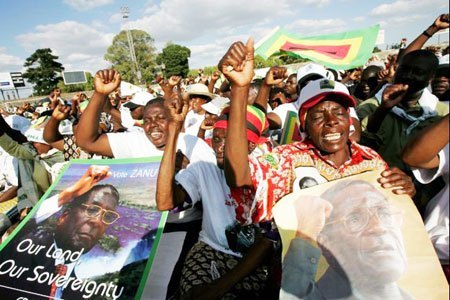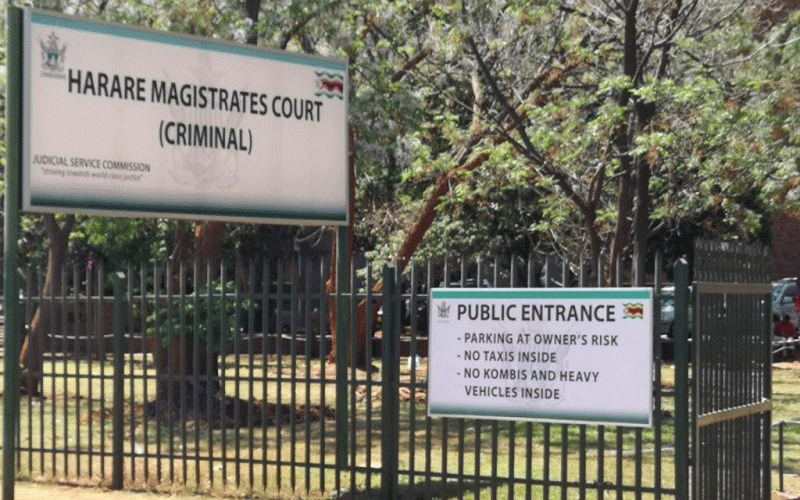
INTERNAL fights in Zanu PF, which are rearing their ugly heads during the on-going provincial elections, are a common phenomenon and do not signify a weakening of the party, analysts have said.
BY PATRICE MAKOVA
But others said allegations of electoral fraud by some candidates may give ammunition to Zanu PF critics, including the MDC-T, which up to now refuses to accept its massive defeat to the ruling party in the July 31 elections.
The provincial elections have been marred by chaos and allegations of vote rigging, buying of votes and imposition of candidates as different factions in the party fight for influential positions ahead of next year’s elective congress.
The fights are mostly pitting a faction loyal to Vice-President, Joice Mujuru and another one linked to Justice minister, Emmerson Mnangagwa — the two leading contenders in the battle to succeed 89-year-old President Robert Mugabe.
University of Zimbabwe political science lecturer, Eldred Masunungure said people should not read much in the current fights and chaos in Zanu PF, as the party has always thrived on such behaviour since its formation, a half century ago.
He said Zanu PF has over the years exhibited attributes of chaos and disorderliness, but manages to overcome these when faced with an external enemy.
“It’s a typical baboon type of approach where they unite to fight a common external enemy. But when the external enemy is defeated, they go back to fight each other,” said Masunungure. “Zanu PF will therefore outlive this chaos and disorder and what is currently happening simply confirms what the party has been for half a century.”
- Chamisa under fire over US$120K donation
- Mavhunga puts DeMbare into Chibuku quarterfinals
- Pension funds bet on Cabora Bassa oilfields
- Councils defy govt fire tender directive
Keep Reading
The UZ lecturer said the current fights were being worsened by the absence of an external enemy and the party’s “supermajority” status in parliament, cabinet and the economy where it was dictating the path the country was taking.
“These are some of the dangers of a supermajority status. There are hardly any checks and balances and power is centralised,” he said. Political scientist, Shakespeare Hamauswa was also of the view that Zanu PF unites when facing a common enemy.
He said the party has learnt from the 2008 bhora musango (protest vote) when Mugabe’s defeat to MDC-T leader, Morgan Tsvangirai, became a humiliation to every party member.
“They realised that if they lose, they do so as a party,” said Hamauswa. “The warring parties now can support a candidate from another faction so that they win at inter-party level.”
He said complaints of rigging, which were being raised by some candidates contesting the provincial elections were common to every political party “under the sun”.
Internal fights, manifestation of succession battle: Analysts
Political scientist, Shakespeare Hamauswa said every contesting element always seeks an advantage through the use of resources at its disposal.
“What is only important is to maintain a minimum standard of deviations from the expected normal process,” he said. “Otherwise, in every political game the losers always complain and the winners pride themselves for using smart tactics and would want the whole world to believe they are or have been elected through a legitimacy process.”
But, the political scientist conceded that allegations of electoral fraud, may confirm what Zanu PF opponents and other organisations have been saying on the irregularities surrounding the voting process.
He said this also showed that some of the issues emerging and re-emerging, such as electoral violations were rooted in Zimbabwe’s tradition and they are hard to die.
“The complaints show that everyone needs a transparent and legitimate electoral process, whether in Zanu PF or in any organisation. Thus legitimacy is indispensable to every electoral process,” said Hamauswa.
Political analyst and community development activist, George Makoni believes that the current fiasco in the Zanu PF elections was a manifestation and result of the succession dispute in the party.
“The Mujuru and Mnangagwa rivalry seems to have climaxed in the context of a possibility of succession becoming a reality given the President’s age and consequently his health,” he said.
“It has also been exacerbated by the fact that the provincial elections will determine the victors in the elective congress to be held next year.”
Makoni said the only position which was unlikely to be contested was that of Mugabe, hence the “desperation” to strategise on how to take over power from him.
But Makoni said allegations of massive vote rigging in the form of “stage-managed” assistedvoters in Kwekwe, vote-buying in Mashonaland West, intimidation of voters and partial election administrators in Manicaland and shambolic voters rolls in Matabeleland, “is chorus to the hymn being sung” by the MDC-T in the last harmonised elections.
“One then wonders if this is coincidence or political disdain by Zanu PF senior officials including party commissar, Webster Shamu,” he said.
“It also seems that Zanu PF has grasped the concept that as long as there is no naked violence, then elections are peaceful, free and fair. Given that Zanu PF is the ruling party means there is a lot to be desired concerning our electoral field as a nation.”










